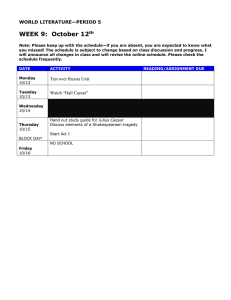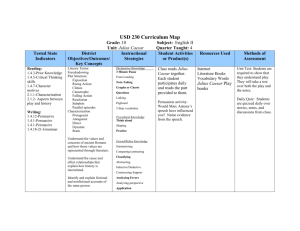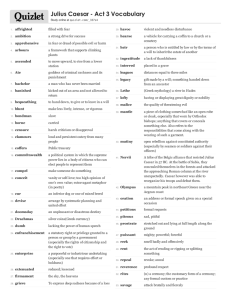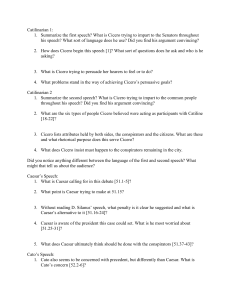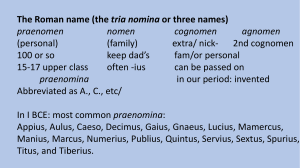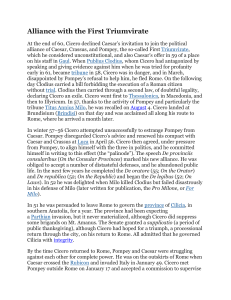Primary and Secondary Sources would be considered primary sources, contemporary secondary
advertisement
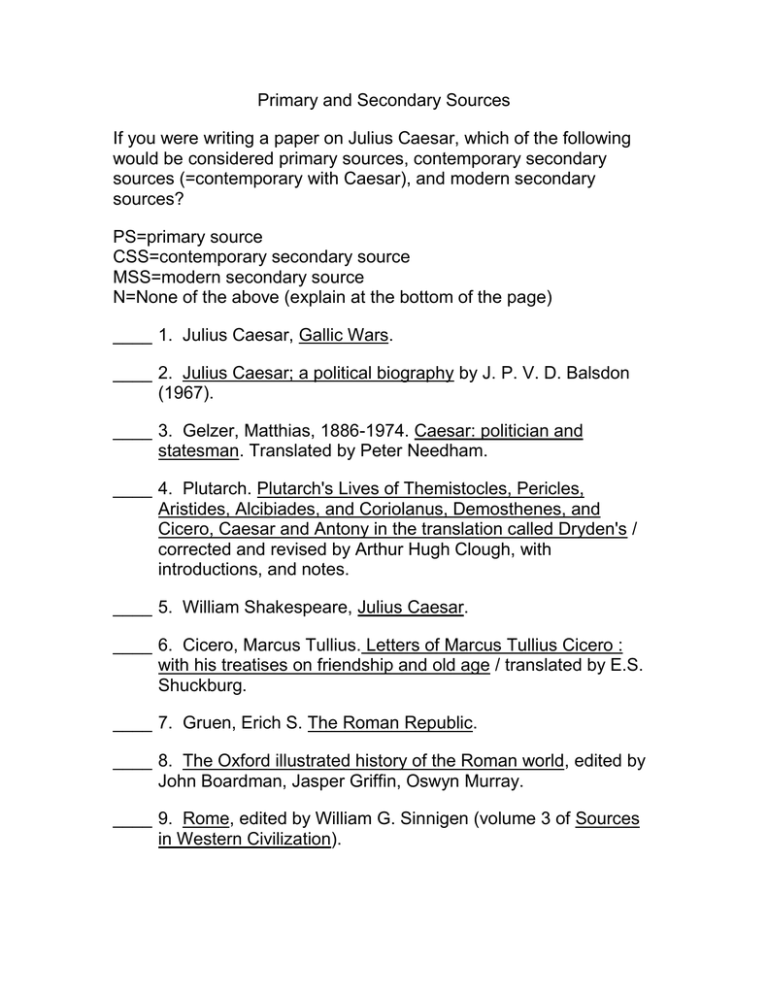
Primary and Secondary Sources If you were writing a paper on Julius Caesar, which of the following would be considered primary sources, contemporary secondary sources (=contemporary with Caesar), and modern secondary sources? PS=primary source CSS=contemporary secondary source MSS=modern secondary source N=None of the above (explain at the bottom of the page) ____ 1. Julius Caesar, Gallic Wars. ____ 2. Julius Caesar; a political biography by J. P. V. D. Balsdon (1967). ____ 3. Gelzer, Matthias, 1886-1974. Caesar: politician and statesman. Translated by Peter Needham. ____ 4. Plutarch. Plutarch's Lives of Themistocles, Pericles, Aristides, Alcibiades, and Coriolanus, Demosthenes, and Cicero, Caesar and Antony in the translation called Dryden's / corrected and revised by Arthur Hugh Clough, with introductions, and notes. ____ 5. William Shakespeare, Julius Caesar. ____ 6. Cicero, Marcus Tullius. Letters of Marcus Tullius Cicero : with his treatises on friendship and old age / translated by E.S. Shuckburg. ____ 7. Gruen, Erich S. The Roman Republic. ____ 8. The Oxford illustrated history of the Roman world, edited by John Boardman, Jasper Griffin, Oswyn Murray. ____ 9. Rome, edited by William G. Sinnigen (volume 3 of Sources in Western Civilization). ____ 10. Colleen McCullough (author of The Thorn Birds), Fortune’s Favorite (historical novel). After each source, give your rating: **** =Best *** =Acceptable ** =Marginally acceptable * =Unacceptable
